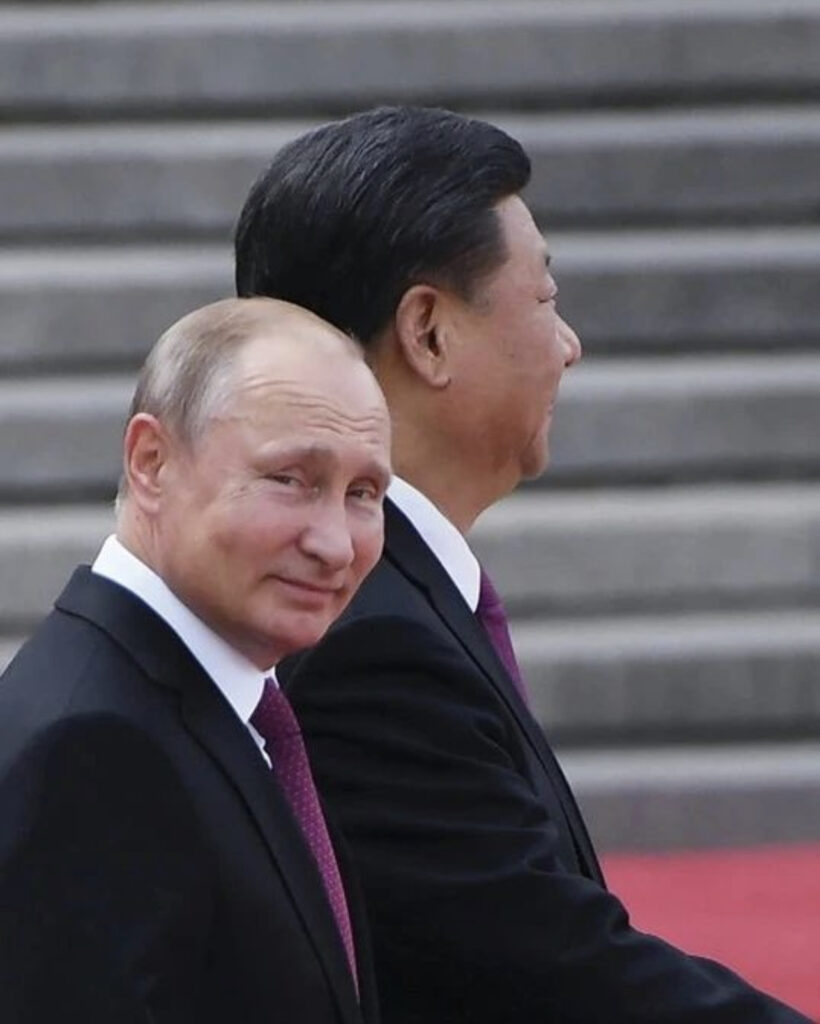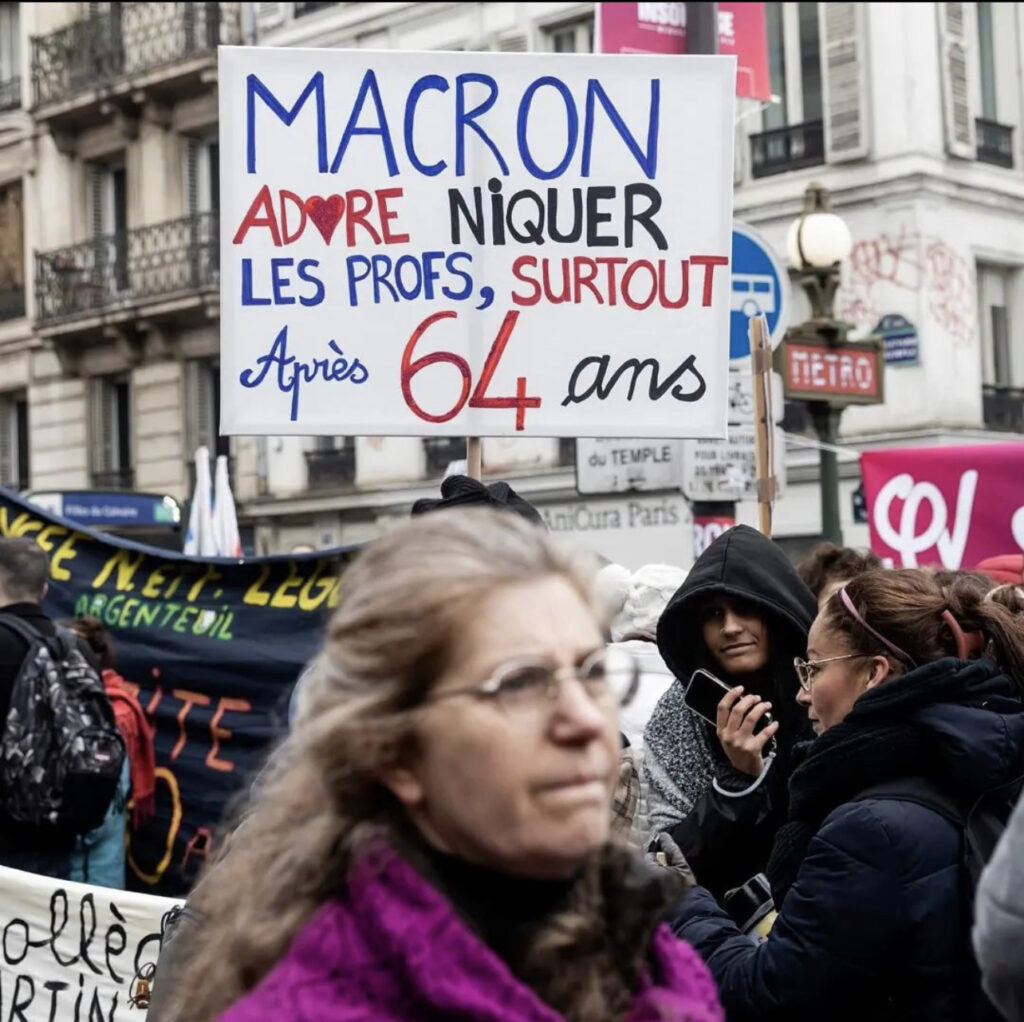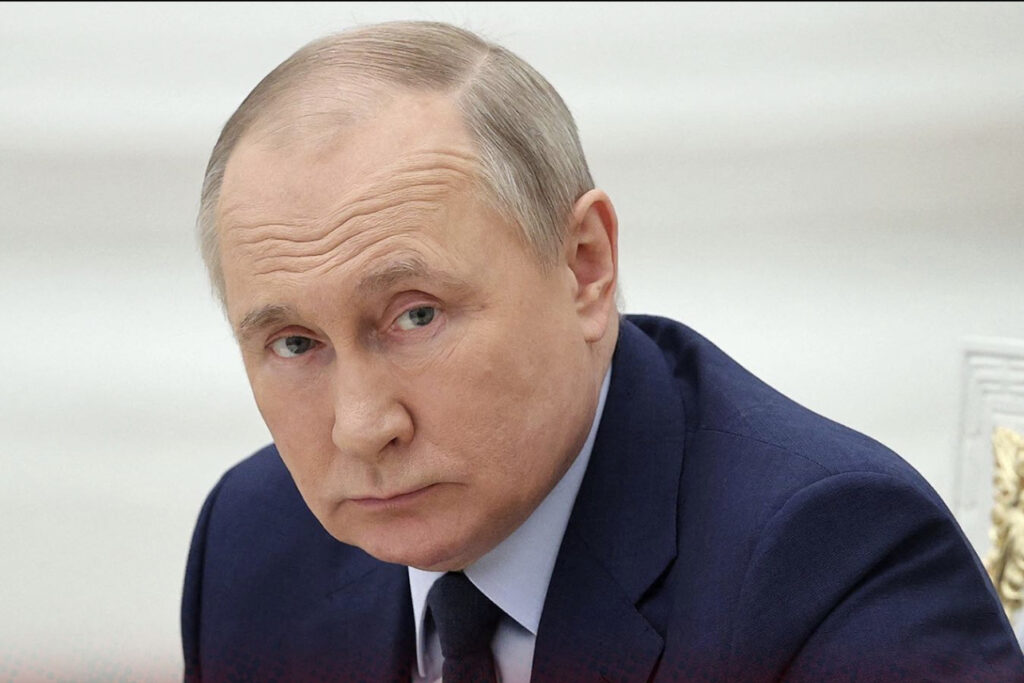Chinese President Xi Jinping’s lands in Russia to meet with President Vladimir Putin.
This visit is being portrayed as a display of China’s increasing diplomatic influence on the world stage and its desire to challenge the US-led global order. While Beijing is emphasizing the “journey of peace,” Western capitals view the optics of two autocratic leaders who have long been close allies feasting while a conflict rages in Europe.
Xi stated that China is willing to continue working with Russia to protect the international order. However, the timing of the visit coincides with a recent diplomatic victory for China, which helped Saudi Arabia and Iran restore diplomatic ties, and the issuing of an arrest warrant by the International Criminal Court for Putin’s alleged war crimes related to Moscow’s deportation of Ukrainian children. This puts Xi in an awkward position, as he dines with a suspected war criminal who he has called a “best friend” and affirms his partnership with a global pariah.
Xi’s visit to Russia is viewed by the United States and much of Europe as a clear demonstration of support for Putin, who is increasingly isolated as his military faces supply shortages and Russia’s economy struggles due to Western sanctions.
Concerns have been raised by Western officials in recent weeks that China might provide lethal aid to Russia’s military. Beijing has denied these allegations and instead accused the US of fueling the conflict by supplying Ukraine with weapons. American officials have stated that they will be closely monitoring Xi’s summit with Putin for any indications that China is providing weapons to Russia.
Ukraine is also keeping a close eye on the situation. “We sincerely hope that China will not become a partner in this terrible war,” said Oksana Markarova, Ukraine’s ambassador to Washington, in an interview with CNN. “It will be a meeting with a person who is officially suspected by the International Criminal Court.”
Delicate nature of diplomatic relations China-Russia
In Moscow, Xi faces a delicate diplomatic balancing act, as he endeavors to portray China as a neutral mediator of peace, while strengthening ties with Russia without worsening relations with Europe – a crucial trade ally that Beijing has tried to lure away from the United States.
In a Russian state media article published on Monday, Xi
positioned his upcoming visit as a “journey of friendship, collaboration,
and peace,” pledging to begin “a new era” of bilateral
relations. He also declared that China has always maintained an “objective
and impartial stance” on Ukraine and has been actively advancing peace
negotiations.
On the same day, the official newspaper of the Chinese Communist Party, The People’s Daily, published a letter from Putin praising “Comrade Xi” and his belief that Western powers will eventually target China.
Brian Hart, a China Power Project fellow at the Center for Strategic and International Studies, explained that Xi hopes to utilize this visit to present himself as a statesman and to demonstrate that China is a major global power and peacekeeper with the ability to shape world events.
The timing of the long-awaited meeting is strategic, as it enables the Chinese leader to capitalize on the momentum of Beijing’s recent diplomatic victory in the Middle East to influence, or at least appear to be influencing, the course of the conflict in Ukraine.
Hart believes that the war will be a much more significant challenge, and the primary question is whether Xi will use his leverage to shape Russia’s conduct in the war going forward. So far, Xi has not taken any concrete steps to put an end to the war.
Power, Influence, Resources
Although China has professed to be neutral and called for peace talks, it has provided Moscow with crucial diplomatic and economic support during the invasion.
China has echoed Russian propaganda, blamed the West for
instigating the war in Ukraine, and repeatedly supported Russia in vetoing
international measures against Moscow for the invasion.
Furthermore, it has increased trade ties with Russia, purchasing
large quantities of oil and natural gas at reduced prices, which has helped to
finance Putin’s military operations.
Additionally, China’s People’s Liberation Army has been conducting
joint military exercises with their Russian counterparts.
Shortly before Xi Jinping’s visit to Russia, the Russian military announced that Russia, China, and Iran had completed joint naval exercises in the Arabian Sea, sending a defiant message to the Western alliance. China’s one-sided stance is also evident in its diplomatic relations with Moscow and Ukraine, which highlights the asymmetry further, especially during Xi’s visit to Russia. According to Brian Hart, China’s Foreign Ministers have only talked with their Ukrainian counterparts five times since the start of the war, while Chinese officials have spoken with Russian officials 29 times, including four phone calls between Xi and Putin since the invasion. However, Xi has not yet had a single phone call with Ukrainian President Volodymyr Zelensky.
Peace Talks
The visit by the Chinese leader to Moscow has been highly anticipated and comes after China released a position paper on a “political settlement” to the war in Ukraine, which was seen as a move to establish its credentials as a potential peace mediator. However, the plan received a lukewarm reception from Moscow and Kyiv and was criticized by Western officials for lacking substance and failing to acknowledge Russia’s violation of Ukraine’s sovereignty. American and European officials remain skeptical and concerned about China’s self-proclaimed role as a peace broker for now.
John Kirby, the spokesman for the White House National Security Council, has expressed skepticism about any potential ceasefire framework proposed by Beijing, stating that it would only reflect the Russian perspective and be one-sided. He argued that a ceasefire would only ratify Russia’s conquest and allow them to solidify their positions in Ukraine, refit and rebuild their forces, and then resume attacks at their convenience. Brian Hart, an expert at CSIS, believes that Xi’s visit to Moscow is unlikely to have a significant impact on the progress of the Ukraine war, as neither side is prepared to make the necessary concessions to end the conflict. While Beijing may be able to exert some pressure on Putin to affect the war’s outcome marginally, it has yet to occur.



